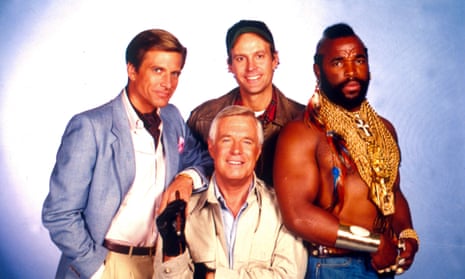Most of us born in the 1970s or earlier remember watching the hit 1980s television show The A-Team when it first aired, while those younger may have only seen re-runs. Either way, we anxiously watched the heroes, a bunch of misfits led by Hannibal, thrill us with their adventures, getting the better of the bad guys and helping the good guys. We couldn’t wait for the next dramatic episode.
In today’s world of humanitarian assistance, aid workers in high-profile locations, delivering life-saving help to besieged Syrian towns or fighting Ebola in west Africa, can be likened to Hannibal and his motley crew.
But alongside these examples of aid that make the headlines, there are many, many others working hard to deliver assistance in the form of food, water, medical assistance and basic skills to communities, who don’t get coverage.
Are they not heroes too? It can be disheartening when the work of those outside high-profile emergencies isn’t appreciated, even among their colleagues, who think the work in non-emergencies is not as important as theirs.
Sometimes I feel this way, but only for a split second, as we all know that it is not enough to focus on the “it” issues alone. I have worked in places such as Afghanistan, where the harsh reality of delivering much-needed humanitarian assistance means daily experiences like narrowly missing a vehicle-borne explosive device or being holed up in bunker for three hours not knowing what was going on outside.
So I expect my colleagues working on high-profile disasters are sometimes a bit envious of those of us who can work in a country where you can go anywhere and meet people without worrying about security, and who are able to live in their own home and enjoy the privacy that compound life lacks. We are able to lead normal lives in these places but still have a deep impact on the lives of those we serve.
The adrenalin rush is great, of course, and keeps you pumped, but there is more to life than that. In forgotten crises we are in it for the long haul, working on sustainable solutions to chronic issues that are often the underlying causes of the headline-grabbing emergencies. At a grassroots level, we are talking about the importance of communities surviving until the next season, where how much rain there will be and how long it will last, how much the price of fertilisers will be and what farmers are able harvest from their fields decide the fate of families.
The day-to-day work we do, providing food or improving sanitation, for example, isn’t glamorous or exciting but it’s essential. The people we work with don’t plan for years ahead, but week to week. Their needs are basic but their worries heartbreaking. Will they be able to feed their family this season? Will they be able to pay for uniforms and shoes for their children to attend the nearest school? Or will they have to pull the eldest daughter out of education so she can work or getting married to contribute to the family income?
Most humanitarians aren’t in this job for exotic R&R in Bali, or the danger pay of the emergencies. We know the work we do is critical. This is reinforced every time we meet the mothers, fathers and children in the forgotten places who thank us for making their lives better.
We are proud of the work we do because what counts is not being a hero in the media or even to our colleagues, but getting the gratitude, smile or occasional tears of joy from that mother, father, or child who thanks you for the support.
No matter where we work, as long as we are in the aid world we are all part of The A-Team.
Do you have a secret aid worker story you’d like to tell? You can contact us confidentially at globaldevpros@theguardian.com – please put “Secret aid worker” in the subject line. If you’d like to encrypt your email to us, here’s instructions on how to set up a PGP mail client and our public PGP key.
Join our community of development professionals and humanitarians. Follow @GuardianGDP on Twitter.

Comments (…)
Sign in or create your Guardian account to join the discussion